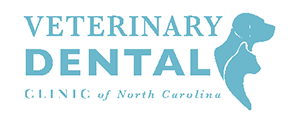FAQs
Learn more about what to expect when working with Veterinary Dental Clinic of Durham.
What kind of dental services do you provide?
- Pediatric Dentistry including bite evaluations and extraction of retained or fractured primary teeth
- Periodontics including periodontal surgery and guided tissue regeneration
- Endodontics including root canal therapy of mature teeth and crown reduction/vital pulp therapy of teeth causing trauma
- Exodontics including full-mouth extractions for chronic ulcerative paradental disease (CUPS) and feline stomatitis
- Oral Surgery including removal of oral tumors and surgical treatment of dental cysts
- Orthodontics including treatment of base-narrow mandibular canine teeth
- Mandibular Fracture repair using inter-dental wiring and intra-oral splinting
How do I know if my pet's mouth is painful?
Why are dental radiographs always needed?
Since oral disease does not stop at the gumline, intraoral radiographs of the root structure and surrounding bone are imperative to diagnose disease and develop a treatment plan for oral disease in pets. Without the use of dental radiographs, we are prevented from seeing two-thirds of the tooth structure. There are many indications for dental radiographs including the following: red or swollen gums, bleeding gums, broken teeth, missing teeth, resorptive lesions, loose teeth, abnormal periodontal pocket depth around teeth, worn teeth, and discolored teeth.
Do I need a referral from my family veterinarian?
Although most patients are referred directly by their family veterinarian; it is not required. Your family veterinarian plays a critical role in your pet’s overall health. The team at VDCNC will work with you to ensure that all the necessary information is received from your family veterinarian prior to your appointment time. We also have a strong commitment to communicating all examination findings and treatments to your regular veterinarian the same day of the visit.
What type of pre-operative screening is needed prior to my appointment?
Will my pet need to stay overnight?
How much will it cost?
Is there a weight limit for pets?
Have more questions?
